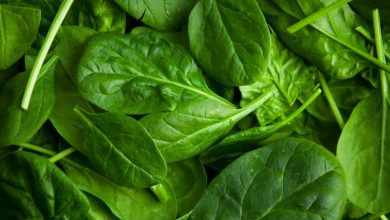Home Remedies for Indigestion, Relieving Tips, & Foods to Eat
Home Remedies for Indigestion: – Before using antacids once more if you have been experiencing indigestion and overeating rather frequently, it is time to attempt some efficient home remedies for indigestion. Indigestion is a medical disease that can cause nausea, bloating, and a burning sensation, despite being common and safe. Long-term chronic health difficulties may develop as a result of indigestion episodes that are frequent. Continue reading to learn more about how to deal with and treat indigestion with natural home remedies.
Related:- Home Remedies for Sour Stomach

What Causes Indigestion?
Indigestion, also known as dyspepsia, is a condition that can cause discomfort or pain in the upper abdomen. There are several possible causes of indigestion, including:
- Overeating or eating too quickly: When you eat too much food, or eat too quickly, your stomach may struggle to digest the food properly, leading to indigestion.
- Spicy or fatty foods: Certain foods can be difficult to digest, especially those that are high in fat or spices.
- Stress: Stress and anxiety can interfere with digestion and cause indigestion.
- Acid reflux or gastroesophageal reflux disease (GERD): When stomach acid flows back into the esophagus, it can cause heartburn and indigestion.
- Medications: Some medications can cause indigestion as a side effect, such as nonsteroidal anti-inflammatory drugs (NSAIDs), antibiotics, and some heart medications.
- Alcohol and smoking: Consuming alcohol or smoking can irritate the stomach lining and lead to indigestion.
- Medical conditions: Certain medical conditions, such as ulcers, gastritis, pancreatitis, and gallstones, can cause indigestion.
Symptoms of Indigestion
Indigestion, also known as dyspepsia, can cause a variety of signs and symptoms. These can include:
- Pain or discomfort in the upper abdomen: This is the most common symptom of indigestion. The pain may be burning, gnawing, or aching.
- Feeling bloated or full: You may feel like you’ve eaten too much or that your stomach is stretched.
- Nausea or vomiting: Indigestion can cause a feeling of queasiness or even lead to vomiting.
- Belching or gas: You may experience excessive belching or passing of gas.
- Acidic taste in the mouth: Indigestion can cause regurgitation of stomach acid into the mouth, leading to a sour or acidic taste.
- Loss of appetite: You may feel less hungry or have a decreased desire to eat.
- Fatigue or weakness: Indigestion can cause fatigue or weakness due to the body’s increased effort to digest food.
It is important to note that these symptoms can also be associated with other medical conditions, so it is important to consult a healthcare professional if you experience persistent or severe symptoms.
Baking Soda for indigestion
Home Remedies for Indigestion: – Baking soda, also known as sodium bicarbonate, is sometimes used as a home remedy for indigestion. It is believed to work by neutralizing stomach acid, which can help relieve symptoms of acid reflux and indigestion. However, it is important to use baking soda with caution and under the guidance of a healthcare professional.
If you want to use baking soda for indigestion, dissolve half a teaspoon of baking soda in a glass of water and drink it slowly. Do not exceed this dosage, as consuming too much baking soda can lead to side effects such as nausea, diarrhea, and vomiting. Also, people with high blood pressure should not use baking soda for indigestion as it can lead to a sudden increase in blood pressure.
It is important to note that using baking soda for indigestion is not a substitute for medical treatment. If you experience persistent or severe symptoms of indigestion, it is important to consult a healthcare professional for proper diagnosis and treatment.
Apple Cider Vinegar recipe for indigestion
Home Remedies for Indigestion: – Apple cider vinegar is also a popular home remedy for indigestion. It is believed to help by increasing the acidity of the stomach, which can improve digestion and prevent acid reflux. Here’s a simple recipe for using apple cider vinegar for indigestion:
Ingredients:
- 1 to 2 tablespoons of apple cider vinegar
- 8 ounces of water
Instructions:
- Mix 1 to 2 tablespoons of apple cider vinegar with 8 ounces of water.
- Drink the mixture slowly, over the course of 5 to 10 minutes.
- Repeat this as necessary, up to three times per day.
It is important to note that while apple cider vinegar can be helpful for some people with indigestion, it may not be effective for everyone. It is also important to use apple cider vinegar with caution, as consuming too much can lead to side effects such as tooth enamel erosion, throat irritation, and stomach upset. If you experience persistent or severe symptoms of indigestion, it is important to consult a healthcare professional for proper diagnosis and treatment.
Essential Oils
Home Remedies for Indigestion: – Some essential oils can help relieve symptoms of indigestion when used properly. Here are a few essential oils that may be helpful:
- Peppermint oil: Peppermint oil has been shown to help relax the muscles in the digestive tract and relieve symptoms of indigestion. It can be taken internally or applied topically to the abdomen.
- Ginger oil: Ginger oil can help reduce inflammation in the digestive tract and improve digestion. It can be taken internally or applied topically to the abdomen.
- Fennel oil: Fennel oil has been used for centuries to relieve symptoms of indigestion. It can help reduce gas and bloating and improve digestion. It can be taken internally or applied topically to the abdomen.
- Lemon oil: Lemon oil can help stimulate digestion and improve liver function, which can help relieve symptoms of indigestion. It can be taken internally or applied topically to the abdomen.
It is important to note that essential oils should be used with caution and under the guidance of a healthcare professional. Some essential oils can be toxic if ingested, and others can cause skin irritation or other side effects when applied topically. It is also important to choose high-quality, pure essential oils and to follow the recommended dosage instructions.
Lemon Essential Oil remedy for indigestion
Home Remedies for Indigestion: – Lemon essential oil is a popular home remedy for indigestion as it has properties that can help stimulate digestion and improve liver function, which can help relieve symptoms of indigestion. Here’s a simple recipe for using lemon essential oil for indigestion:
Ingredients:
- 1-2 drops of high-quality, pure lemon essential oil
- 8 ounces of warm water
Instructions:
- Add 1-2 drops of high-quality, pure lemon essential oil to 8 ounces of warm water.
- Stir well.
- Drink the mixture slowly, over the course of 5 to 10 minutes.
- Repeat this as necessary, up to three times per day.
It is important to note that lemon essential oil should only be used internally if it is safe for ingestion and is of high-quality and pure. Some essential oils are not safe for ingestion, and others can cause skin irritation or other side effects when applied topically or ingested. It is important to consult a healthcare professional and use essential oils with caution.
Ginger Essential Oil
Home Remedies for Indigestion: – Ginger essential oil is a popular home remedy for indigestion because it can help reduce inflammation in the digestive tract and improve digestion. Here’s a simple recipe for using ginger essential oil for indigestion:
Ingredients:
- 1-2 drops of high-quality, pure ginger essential oil
- 8 ounces of warm water
Instructions:
- Add 1-2 drops of high-quality, pure ginger essential oil to 8 ounces of warm water.
- Stir well.
- Drink the mixture slowly, over the course of 5 to 10 minutes.
- Repeat this as necessary, up to three times per day.
It is important to note that ginger essential oil should only be used internally if it is safe for ingestion and is of high-quality and pure. Some essential oils are not safe for ingestion, and others can cause skin irritation or other side effects when applied topically or ingested. It is important to consult a healthcare professional and use essential oils with caution.
Milk
Home Remedies for Indigestion: – Milk is a traditional home remedy for indigestion that has been used for generations. The idea is that the milk can help neutralize stomach acid and provide relief from symptoms of indigestion. Here’s how to use milk as a remedy for indigestion:
- 1 cup of milk
- Instructions:
- Heat 1 cup of milk in a saucepan or microwave until it is warm but not boiling.
- Drink the milk slowly, taking small sips.
- Repeat this as necessary, up to three times per day.
It is important to note that while milk can be helpful for some people with indigestion, it may not be effective for everyone. Additionally, milk may actually worsen symptoms of indigestion in some people, particularly if they are lactose intolerant or have an allergy to milk. If you experience persistent or severe symptoms of indigestion, it is important to consult a healthcare professional for proper diagnosis and treatment.
Honey
Home Remedies for Indigestion: – Honey is a natural remedy that may be helpful for relieving symptoms of indigestion. It has antibacterial properties that can help prevent infections in the digestive tract, and it can also soothe inflammation and irritation in the stomach lining. Here’s a simple recipe for using honey for indigestion:
Ingredients:
- 1 tablespoon of raw, unpasteurized honey
- 1 cup of warm water
Instructions:
- Add 1 tablespoon of raw, unpasteurized honey to 1 cup of warm water.
- Stir well until the honey is completely dissolved.
- Drink the mixture slowly, over the course of 5 to 10 minutes.
- Repeat this as necessary, up to three times per day.
It is important to note that while honey can be a helpful home remedy for some people with indigestion, it should not be given to children under the age of one due to the risk of infant botulism. Additionally, people with diabetes or other health conditions that affect blood sugar levels should use honey with caution and under the guidance of a healthcare professional.
Aloe Vera Juice
Home Remedies for Indigestion: – Aloe Vera juice is a natural remedy that may be helpful for relieving symptoms of indigestion. Aloe Vera contains compounds that can soothe inflammation and irritation in the digestive tract, and it may also help improve digestion and regulate bowel movements. Here’s how to use aloe vera juice for indigestion:
Ingredients:
- 1/4 to 1/2 cup of aloe vera juice
- 1 cup of water
Instructions:
- Mix 1/4 to 1/2 cup of aloe vera juice with 1 cup of water.
- Drink the mixture slowly, taking small sips.
- Repeat this as necessary, up to three times per day.
It is important to note that while aloe vera juice can be helpful for some people with indigestion, it may not be effective for everyone. Additionally, aloe vera can have a laxative effect, so it is important to start with a small amount and gradually increase the dose if needed. People who are pregnant or breastfeeding or who have kidney disease should avoid using aloe vera juice. As with any home remedy, it is important to consult a healthcare professional if you have persistent or severe symptoms of indigestion.
Coconut Oil
Home Remedies for Indigestion: – Coconut oil is a natural remedy that may be helpful for relieving symptoms of indigestion. It contains medium-chain triglycerides (MCTs), which can help improve digestion and reduce inflammation in the digestive tract. Here’s how to use coconut oil for indigestion:
Ingredients:
- 1 tablespoon of organic, unrefined coconut oil
- 1 cup of warm water
Instructions:
- Add 1 tablespoon of organic, unrefined coconut oil to 1 cup of warm water.
- Stir well until the coconut oil is completely dissolved.
- Drink the mixture slowly, over the course of 5 to 10 minutes.
- Repeat this as necessary, up to three times per day.
It is important to note that while coconut oil can be a helpful home remedy for some people with indigestion, it may not be effective for everyone. Additionally, coconut oil is high in calories and saturated fat, so it should be used in moderation as part of a balanced diet. People with a history of heart disease or high cholesterol should talk to a healthcare professional before using coconut oil as a home remedy.
Fennel Seeds
Home Remedies for Indigestion: – Fennel seeds are a natural remedy that may be helpful for relieving symptoms of indigestion. Fennel contains compounds that can help relax the muscles in the digestive tract, reduce inflammation, and improve digestion. Here’s how to use fennel seeds for indigestion:
Ingredients:
- 1 teaspoon of fennel seeds
- 1 cup of hot water
Instructions:
- Crush 1 teaspoon of fennel seeds using a mortar and pestle or a spice grinder.
- Add the crushed fennel seeds to 1 cup of hot water.
- Let the mixture steep for 10 to 15 minutes.
- Strain the mixture to remove the fennel seeds.
- Drink the tea slowly, taking small sips.
- Repeat this as necessary, up to three times per day.
It is important to note that while fennel seeds can be a helpful home remedy for some people with indigestion, they may not be effective for everyone. Additionally, people with a history of allergies to celery, carrots, or mugwort should avoid using fennel. As with any home remedy, it is important to consult a healthcare professional if you have persistent or severe symptoms of indigestion.
Chamomile Tea
Home Remedies for Indigestion: – Chamomile tea is a natural remedy that may be helpful for relieving symptoms of indigestion. Chamomile contains compounds that can help relax the muscles in the digestive tract, reduce inflammation, and soothe the lining of the stomach. Here’s how to use chamomile tea for indigestion:
Ingredients:
- 1 chamomile tea bag or 1 tablespoon of loose chamomile flowers
- 1 cup of hot water
Instructions:
- Place the chamomile tea bag or loose chamomile flowers in a cup.
- Pour 1 cup of hot water over the chamomile.
- Let the tea steep for 5 to 10 minutes.
- Remove the tea bag or strain the loose flowers from the tea.
- Drink the tea slowly, taking small sips.
- Repeat this as necessary, up to three times per day.
It is important to note that while chamomile tea can be a helpful home remedy for some people with indigestion, it may not be effective for everyone. Additionally, people with allergies to ragweed, chrysanthemums, marigolds, or daisies should avoid using chamomile. As with any home remedy, it is important to consult a healthcare professional if you have persistent or severe symptoms of indigestion.
Cinnamon
Home Remedies for Indigestion: – Cinnamon is a natural remedy that may be helpful for relieving symptoms of indigestion. Cinnamon contains compounds that can help improve digestion, reduce inflammation in the digestive tract, and regulate blood sugar levels. Here’s how to use cinnamon for indigestion:
Ingredients:
- 1 cinnamon stick or 1/2 teaspoon of cinnamon powder
- 1 cup of hot water
Instructions:
- Place the cinnamon stick or cinnamon powder in a cup.
- Pour 1 cup of hot water over the cinnamon.
- Let the mixture steep for 10 to 15 minutes.
- Remove the cinnamon stick or strain the cinnamon powder from the tea.
- Drink the tea slowly, taking small sips.
- Repeat this as necessary, up to three times per day.
It is important to note that while cinnamon can be a helpful home remedy for some people with indigestion, it may not be effective for everyone. Additionally, people with a history of liver disease or those taking blood thinners should consult a healthcare professional before using cinnamon as a home remedy. As with any home remedy, it is important to consult a healthcare professional if you have persistent or severe symptoms of indigestion.
Carbonated Water
Home Remedies for Indigestion: – Carbonated water, also known as sparkling water or seltzer water, may be a helpful home remedy for some people with indigestion. The carbonation in the water can help to relieve symptoms of bloating and gas by promoting burping, which can help to release trapped gas in the stomach. Here’s how to use carbonated water for indigestion:
Ingredients:
- 1 glass of carbonated water
Instructions:
- Pour 1 glass of carbonated water.
- Drink the carbonated water slowly, taking small sips.
- Continue drinking the carbonated water until you feel relief from your symptoms.
It is important to note that while carbonated water can be a helpful home remedy for some people with indigestion, it may not be effective for everyone. Additionally, carbonated water can exacerbate symptoms for some people with acid reflux or GERD, so it’s important to consult a healthcare professional if you have these conditions before using carbonated water as a home remedy. As with any home remedy, it is important to consult a healthcare professional if you have persistent or severe symptoms of indigestion.
Buttermilk
Home Remedies for Indigestion: – Buttermilk is a fermented dairy product that may be a helpful home remedy for some people with indigestion. The lactic acid bacteria in buttermilk can help to promote healthy digestion by breaking down food in the stomach and intestines. Here’s how to use buttermilk for indigestion:
Ingredients:
- 1 cup of buttermilk
Instructions:
- Pour 1 cup of buttermilk.
- Drink the buttermilk slowly, taking small sips.
- Continue drinking the buttermilk until you feel relief from your symptoms.
It is important to note that while buttermilk can be a helpful home remedy for some people with indigestion, it may not be effective for everyone. Additionally, people with lactose intolerance or dairy allergies should avoid using buttermilk as a home remedy. As with any home remedy, it is important to consult a healthcare professional if you have persistent or severe symptoms of indigestion.
Lemon And Ginger Tea
Home Remedies for Indigestion: – Lemon and ginger tea is a natural remedy that can help to soothe digestive discomfort and relieve symptoms of indigestion. The combination of ginger and lemon provides anti-inflammatory and antioxidant properties that can help to reduce inflammation in the digestive tract, ease stomach cramps, and aid digestion. Here’s how to make lemon and ginger tea for indigestion:
Ingredients:
- 1-inch piece of fresh ginger root
- 1/2 lemon
- 1 cup of hot water
- Honey (optional)
Instructions:
- Peel the ginger root and slice it into thin pieces.
- Squeeze the lemon juice into a cup.
- Place the ginger slices into a tea infuser or directly into the cup.
- Pour hot water over the ginger and let it steep for 10-15 minutes.
- Remove the tea infuser or ginger slices from the cup.
- Add honey (if desired) and stir well.
- Drink the tea slowly, taking small sips.
- Repeat this as necessary, up to three times per day.
It is important to note that while lemon and ginger tea can be a helpful home remedy for some people with indigestion, it may not be effective for everyone. Additionally, people with a history of gallstones or those taking blood thinners should consult a healthcare professional before using ginger as a home remedy. As with any home remedy, it is important to consult a healthcare professional if you have persistent or severe symptoms of indigestion.
Black cumin Seeds
Home Remedies for Indigestion: – Black cumin seeds, also known as Nigella sativa, have been used for centuries as a natural remedy for various ailments, including indigestion. The seeds contain thymoquinone, which has anti-inflammatory and anti-spasmodic properties that can help to relieve symptoms of indigestion, such as bloating, gas, and stomach cramps. Here’s how to use black cumin seeds for indigestion:
Ingredients:
- 1 teaspoon of black cumin seeds
- 1 cup of hot water
- Honey (optional)
Instructions:
- Place the black cumin seeds in a tea infuser or directly into a cup.
- Pour hot water over the seeds and let them steep for 10-15 minutes.
- Remove the tea infuser or strain out the seeds from the cup.
- Add honey (if desired) and stir well.
- Drink the tea slowly, taking small sips.
- Repeat this as necessary, up to three times per day.
It is important to note that while black cumin seeds can be a helpful home remedy for some people with indigestion, it may not be effective for everyone. Additionally, pregnant women should avoid using black cumin seeds as a home remedy. As with any home remedy, it is important to consult a healthcare professional if you have persistent or severe symptoms of indigestion.
Oatmeal
Home Remedies for Indigestion: – Oatmeal is a nutritious and fiber-rich food that can help to soothe the digestive system and relieve symptoms of indigestion. The soluble fiber in oatmeal can help to absorb excess acid in the stomach and regulate bowel movements, reducing symptoms such as bloating, gas, and constipation. Here’s how to use oatmeal for indigestion:
Ingredients:
- 1/2 cup of rolled oats
- 1 cup of water or milk
- Honey (optional)
- Fresh fruit (optional)
Instructions:
- Combine the rolled oats and water or milk in a saucepan.
- Bring the mixture to a boil over medium heat, stirring occasionally.
- Reduce the heat to low and simmer for 5-7 minutes, stirring occasionally, until the oatmeal is cooked to your desired consistency.
- Remove the saucepan from the heat.
- Add honey (if desired) and stir well.
- Top with fresh fruit (if desired).
- Eat the oatmeal slowly, taking small bites.
- Repeat this as necessary, up to three times per day.
It is important to note that while oatmeal can be a helpful home remedy for some people with indigestion, it may not be effective for everyone. Additionally, people with celiac disease or gluten sensitivity should use certified gluten-free oats. As with any home remedy, it is important to consult a healthcare professional if you have persistent or severe symptoms of indigestion.
Foods for Indigestion
Home Remedies for Indigestion: – The best foods for indigestion are those that are easy to digest and unlikely to cause irritation to the digestive system. Here are some examples of foods that may help to alleviate symptoms of indigestion:
- Lean proteins: Skinless chicken or turkey, fish, and tofu are good options as they are low in fat and easy to digest.
- Non-citrus fruits: Bananas, melons, and apples are gentle on the stomach and rich in fiber, which can help regulate digestion.
- Vegetables: Leafy greens, carrots, sweet potatoes, and squash are all good options as they are low in acid and high in fiber.
- Grains: Rice, oats, and quinoa are all easy to digest and can help regulate bowel movements.
- Low-fat dairy: Yogurt, skim milk, and low-fat cheese are all good options as they are low in fat and can help to soothe the stomach.
- Herbal teas: Ginger tea, peppermint tea, and chamomile tea can all help to soothe the stomach and alleviate symptoms of indigestion.
- Water: Staying hydrated is important for maintaining good digestion, so be sure to drink plenty of water throughout the day.
It is important to note that while these foods may be helpful for some people with indigestion, everyone is different and may have different trigger foods that exacerbate their symptoms. Additionally, it is always best to consult a healthcare professional if you have persistent or severe symptoms of indigestion.
Relief Tips
Here are some tips that may help to relieve symptoms of indigestion:
- Eat smaller, more frequent meals: This can help to reduce the amount of food in your stomach at one time and make digestion easier.
- Chew your food thoroughly: This can help to break down food into smaller particles and make it easier for your digestive system to process.
- Avoid trigger foods: Certain foods, such as spicy or high-fat foods, may exacerbate symptoms of indigestion. Try to identify your trigger foods and avoid them if possible.
- Stay upright after eating: This can help to keep stomach acid from flowing back up into the esophagus and causing heartburn.
- Practice relaxation techniques: Stress and anxiety can exacerbate symptoms of indigestion, so practicing relaxation techniques such as deep breathing, meditation, or yoga may be helpful.
- Stay hydrated: Drinking plenty of water throughout the day can help to keep your digestive system functioning properly.
- Get regular exercise: Regular exercise can help to improve digestion and reduce stress, which may alleviate symptoms of indigestion.
- Avoid smoking and alcohol: Both smoking and alcohol can irritate the digestive system and exacerbate symptoms of indigestion.
- Consider over-the-counter remedies: Antacids, such as Tums or Rolaids, can help to neutralize stomach acid and alleviate symptoms of indigestion.
- Consult a healthcare professional: If you have persistent or severe symptoms of indigestion, it is important to consult a healthcare professional to rule out any underlying medical conditions and develop an appropriate treatment plan.





